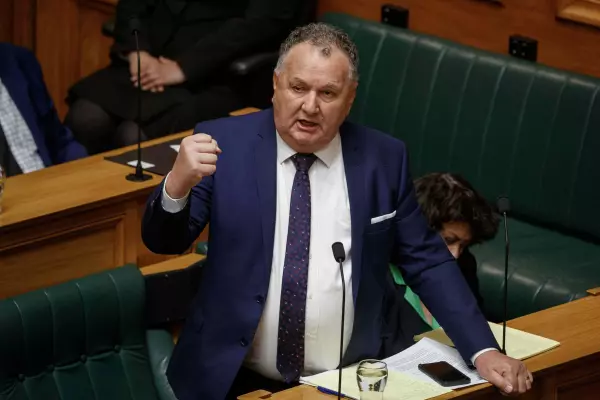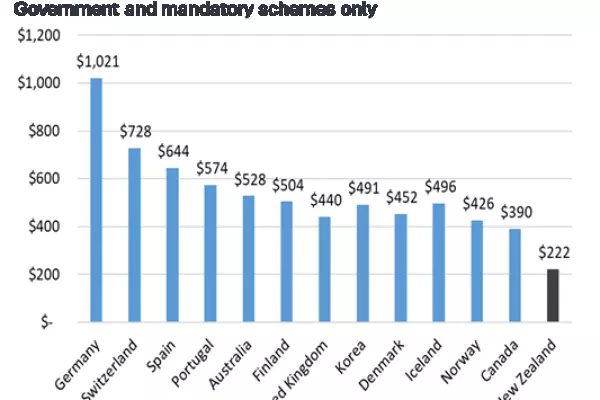The health sector falls well below the national requirements on transparency around tenders for state contracts, BusinessDesk analysis reveals.
Under the government’s rules, when posting contract award notices to the Government Electronic Tender Service (GETS) it's mandatory to report the expected spend of the project.
Earlier this year, Transparency International New Zealand highlighted the government’s poor record on keeping to this rule. It found that the value of contracts had been published in fewer than 30% of listings.
Since then, BusinessDesk analysis has found that the health sector’s performance is even worse.
Of the 520 contracts listed between July 2019 and December 2021 by the Ministry of Health, District Health Boards (DHBs) and other health agencies, just 102 contained the value of the tender – fewer than 20%.
This number is somewhat boosted by the performance of the Canterbury DHB, which included the value in 63% of its tender listings (44 of 70) – making up nearly half (43%) of the rule-compliant health GETS submissions.
It's very much an outlier, however, with seven DHBs failing to include a single value in their online tender award notices. Similarly, engagement with the GETS system was highly inconsistent. Seven DHBs listed fewer than 10 contract notices over the 18 months.
The Waikato DHB submitted the greatest number of award notices, 72, but failed in all but one to submit the expected spend of the project.
The Ministry of Health listed 39 contract award notices in this period, disclosing the value of just 15 (38%).
Across the whole sector, between July 2019 and December 2021, the contracts with listed values were worth $388 million. In 2021, this was $239m.
This represents 1% of the $22.8 billion total crown health expenditure last year, well below the government-wide range of between 1.6% and 2.4% last year.

In a recent interview with BusinessDesk, health minister Andrew Little said the centralisation of DHBs into Te Whatu Ora-Health NZ would improve consistency on procurement, adding: "I think there is a big job of work to do to provide some very close scrutiny of all those [DHB] contracts."
David Green, acting chief financial officer of Te Whatu Ora Waitaha Canterbury told BusinessDesk a concerted effort had been made to develop robust procurement frameworks over the past five years. He said Canterbury’s above-average compliance had actually produced commercial benefits.
“We recognised that in order to build trust with suppliers and organisations, we needed to be transparent in all aspects of our procurement practice, including contract awards.
“From this open, fair and transparent practice, we have found that our supplier relationships have developed to the advantage of both us and our suppliers. Our frameworks also cement the government’s five procurement principles, in particular, principle five, which asks us to be accountable, transparent and reasonable.”
Laurence Millar of Transparency International New Zealand (TINZ) said: “TINZ has consistently expressed concern with the lack of transparency of government procurement, and that government agencies constantly ignore the mandatory procurement rules without consequences.
“We welcome the additional investigation that has built on our analysis to dig deeper into health sector expenditure and are disappointed that the situation in the sector is even worse than the abysmal performance across the whole of government.”
Rule 48 of the Government Procurement Rules says: “An agency must publish the contract award notice on GETS within 30 business days of all parties signing the contract.” That notice must include “the expected spend under the contract/s, or the highest and lowest offers the agency evaluated to award the contract”.
Millar argued that transparency around contracts is far more than just a box-ticking exercise.
“Fraud, bribery and corruption are common risks of government procurement globally, and the most effective tool to manage these risks is transparency – publishing details of the suppliers who have been awarded contracts by the government, and the value of those contracts.
"Without this transparency, there is reduced confidence in the integrity of government expenditure," he added.
The rules
The government’s five procurement principles are:
- Plan and manage for great results.
- Be fair to all suppliers.
- Get the right supplier.
- Get the best deal for everyone
- Play by the rules.















